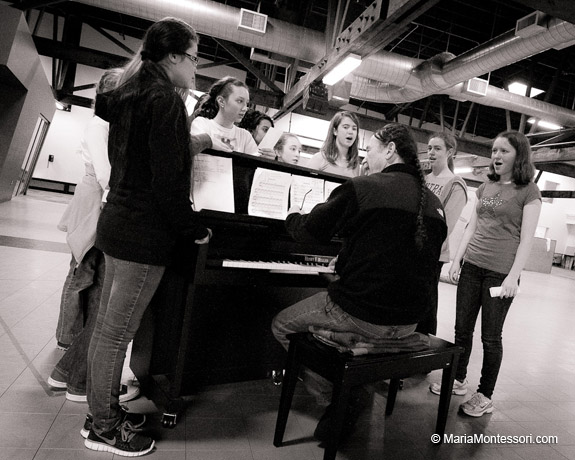November 6, 2022
One of the great pleasures of being a Montessori educator is the opportunity for reflection and renewal that is made possible by the work we do. Recently I had no less than a spiritual awakening when considering our craft.
An elder Quaker friend of mine was speaking of the importance of discernment when attempting to move forward when challenged; that is, letting go of our own preoccupations so as to let the Divine inspire our actions. Through this process, one winnows the desires, thoughts, and personal attachments that might otherwise cloud guidance from Spirit.
It struck me profoundly that this is what we attempt to do in a Montessori environment: prepare ourselves to be open to receive the Light of each child.

In our schools, we approach children with unprejudiced hearts – so as to be led by them. I wonder, however, if we have missed the full import of what Montessori was intending. What if Montessori’s vision was much more profound? What if the mandate to “follow the child” was to mean something far greater than a technical approach to working with children?
What if it implies that the act of teaching must be transformed so as to allow for the conscious care-taking of the Spirit within the children we serve?
Montessorians often use the term spirit to describe the indescribable, that part of a child that is unique and original and ever-unfolding. Given the weight of the term, such talk is usually couched as a holistic view of the child – one that encapsulates cognitive, social, emotional, and physical development – yet that remains special to each individual. In that manner, we commonly talk of children as spiritual beings, eager for learning and attachment.
I contend that there is much more that we can do. I believe that when Montessori spoke of preparing the classroom, she meant laying the temple bare for worship. When she wrote of preparing the teacher, it was much more than good eating and sleeping habits, and time for oneself so that one could be present for others.
Rather, it was something much more profound. At the core, she too asks us to enter into a pattern of discernment, separating our wants and needs and desires, our fears and preoccupations and external directives, so as to illuminate the Light of the child. When Montessori tells us to “follow the child” it is akin to reminding us to let the Divine show us the way.
- When we speak of preparing the teacher, we are preparing ourselves as mindful tenders of the Light.
- When we speak of preparing the environment, we are preparing the cathedral to receive the worship that is the work we do together.
- Guiding becomes stewardship.
- Materials become meditations.
- The flow state that a child reaches with her work is evidence of a complete unification between oneself and the Spirit.
What if we were to re-frame our practice as a spiritual one? Can we find that center – beyond curriculum alone – to the root of Montessori’s cosmic vision? What if we were to shift our mandate, to become one of tending to the Light that is within each child? If we could create an opening for such spiritual transformation, imagine what would be possible.
There is nothing more important than to be present for the children in our care. We are the stewards of their Light.